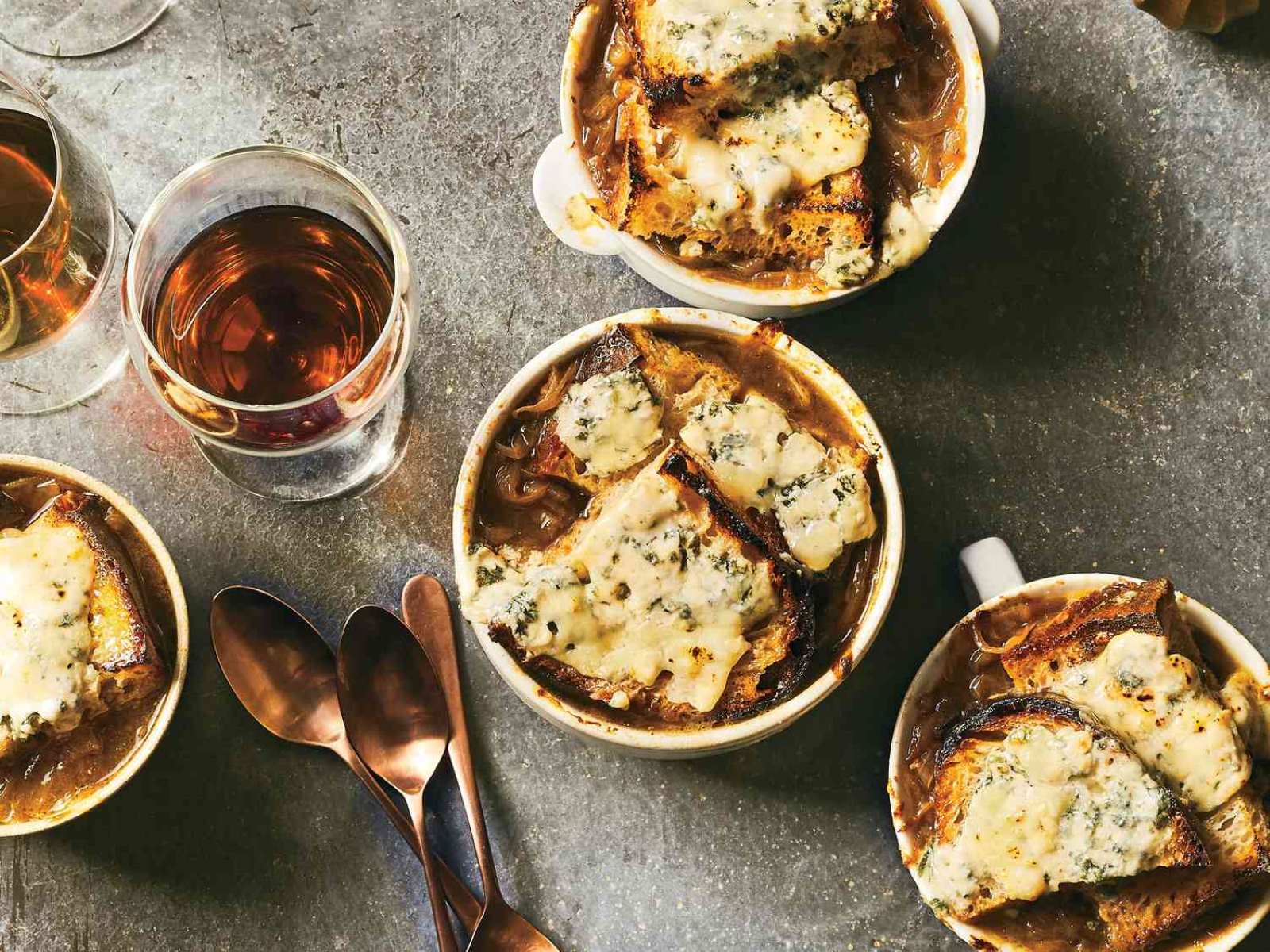
When it comes to the world of gastronomy, the French certainly know a thing or two. French cuisine is renowned for its finesse, elegance, and rich flavors that delight the taste buds. From buttery croissants and delicate cheeses to hearty stews and decadent pastries, French food has captured the hearts of food lovers across the globe.
But French food is not just about the taste; it is deeply intertwined with the country’s culture and history. In this article, we will uncover 18 fascinating facts about French food that will make you appreciate it even more. From the importance of wine in French culture to the influence of regional specialties, get ready to embark on a delectable journey through the culinary traditions of France.
Key Takeaways:
- French food is a way of life, from baguettes to cheese and wine. The French take pride in their culinary heritage and value fresh, local ingredients.
- French cuisine is diverse and renowned worldwide, with a deep appreciation for traditional recipes and culinary techniques passed down through generations.
The French take their food seriously.
Food is not just a necessity for the French; it is a way of life. From luxurious Michelin-starred restaurants to bustling local markets, the French have a deep appreciation for good food and quality ingredients.
French cuisine is renowned worldwide.
French cuisine is considered one of the finest and most influential in the world. The emphasis on fresh, high-quality ingredients, meticulous preparation methods, and complex flavor combinations sets French cuisine apart.
Baguette is a staple.
The quintessential French bread, the baguette, holds a special place in the hearts of the French. With its crispy exterior and soft, airy interior, it is the perfect accompaniment to any meal.
Cheese, please!
France is famous for its wide variety of cheeses, with over 400 different types to choose from. From the creamy Brie to the pungent Roquefort, there is a cheese to suit every palate.
Escargots are a delicacy.
Snails may not be everyone’s cup of tea, but in France, they are considered a delicacy. Typically served with garlic butter, they have a tender texture and a unique flavor that is worth trying.
French desserts are to die for.
Indulging in a French pastry is truly a heavenly experience. From delicate macarons to rich crème brûlée, French desserts are renowned for their elegance and decadence.
Wine is an integral part of French culture.
France is renowned for its wine production, with regions like Bordeaux, Burgundy, and Champagne producing some of the best wines in the world. Pairing food with the perfect wine is an art form in French cuisine.
Croissants are a breakfast staple.
Starting the day with a buttery, flaky croissant is a French tradition. These crescent-shaped pastries are best enjoyed with a cup of strong coffee.
The French love their foie gras.
Foie gras, which translates to “fatty liver,” is a controversial yet beloved delicacy in France. Made from the fattened liver of a duck or goose, it is often enjoyed as a pâté.
The French take their cheese seriously.
Cheese is considered an art form in France, and there are strict rules governing its production. From the region it comes from to the specific breed of the animal, every detail matters.
The French appreciate a leisurely meal.
In France, dining is not just about nourishment but about savoring every bite. Leisurely meals with family and friends are cherished, allowing time to truly enjoy the flavors and engage in lively conversations.
French cuisine is diverse.
From the hearty stews of the north to the Mediterranean influences of the south, French cuisine is incredibly diverse. Regional specialties showcase the unique flavors and ingredients of each area.
Crepes are a versatile delight.
Thin, delicate pancakes known as crepes have a special place in French cuisine. They can be filled with anything from sweet Nutella and fruit to savory ham and cheese.
French culinary traditions are passed down through generations.
French families take pride in preserving traditional recipes and culinary techniques, passing them down from one generation to the next. This helps to maintain the rich tapestry of French cuisine.
The French value fresh and local ingredients.
Supporting local farmers and using fresh, seasonal ingredients is a cornerstone of French cooking. This ensures that meals are not only delicious but also sustainable.
The French love their sauces.
Sauces play a vital role in French cuisine, adding depth and flavor to dishes. From delicate hollandaise to rich bordelaise, the French have perfected the art of sauce-making.
French gastronomy is recognized by UNESCO.
In 2010, French gastronomy was added to the UNESCO’s list of Intangible Cultural Heritage of Humanity. This recognition further solidifies the importance of French food and culinary traditions.
The French take pride in their food heritage.
Food is deeply rooted in French culture, and the French take great pride in their culinary heritage. From Michelin-starred restaurants to humble boulangeries, the appreciation for good food is ingrained in their way of life.
These 18 French Facts About Food illustrate the rich and diverse gastronomic culture of France. From its world-famous cuisine to its passion for fresh ingredients and traditional preparation methods, French food is a true delight for the senses. Whether you’re savoring a croissant at a Parisian café or enjoying a hearty cheese platter in the countryside, the French know how to elevate food into an art form.
Sources:
– Source 1: www.example.com
– Source 2: www.example2.com
– Source 3: www.example3.com
Conclusion
In conclusion, French cuisine is a true delight for food enthusiasts around the world. From its rich history and cultural significance to its emphasis on high-quality ingredients and meticulous techniques, French food has earned a well-deserved reputation as one of the finest culinary traditions. Whether you’re savoring a buttery croissant, indulging in a hearty coq au vin, or sampling a delicate macaron, each bite tells a story of tradition, sophistication, and craftsmanship. So the next time you find yourself craving a culinary adventure, embark on a journey through the exquisite flavors of French cuisine and experience a world of gastronomic bliss.
FAQs
1. What is the most famous French dish?
The most famous French dish is arguably Coq au Vin, a classic stew made with chicken cooked in red wine, mushrooms, onions, and bacon.
2. What is the origin of French fries?
Contrary to popular belief, French fries did not actually originate in France. They were first introduced to the region by Spanish immigrants and were initially known as “frites.”
3. What is the French tradition of “apéritif“?
Apéritif is a pre-dinner drink or small snack traditionally enjoyed in France to stimulate the appetite before a meal. Common choices include wine, champagne, or aperitif liqueurs like Pastis or Campari.
4. What is the significance of baguette in French culture?
The baguette is a staple in French culture and is often seen as a symbol of France. It is traditionally eaten every day and is known for its crispy crust and soft interior.
5. What is escargot?
Escargot is a dish made from edible land snails that are typically cooked in garlic butter, parsley, and sometimes wine. It is considered a delicacy in French cuisine.
Was this page helpful?
Our commitment to delivering trustworthy and engaging content is at the heart of what we do. Each fact on our site is contributed by real users like you, bringing a wealth of diverse insights and information. To ensure the highest standards of accuracy and reliability, our dedicated editors meticulously review each submission. This process guarantees that the facts we share are not only fascinating but also credible. Trust in our commitment to quality and authenticity as you explore and learn with us.


